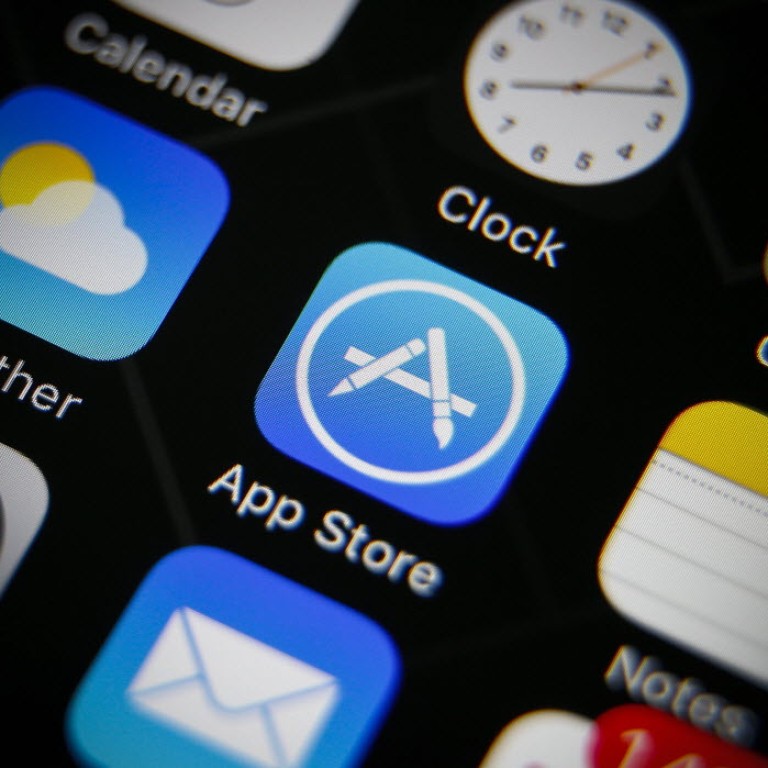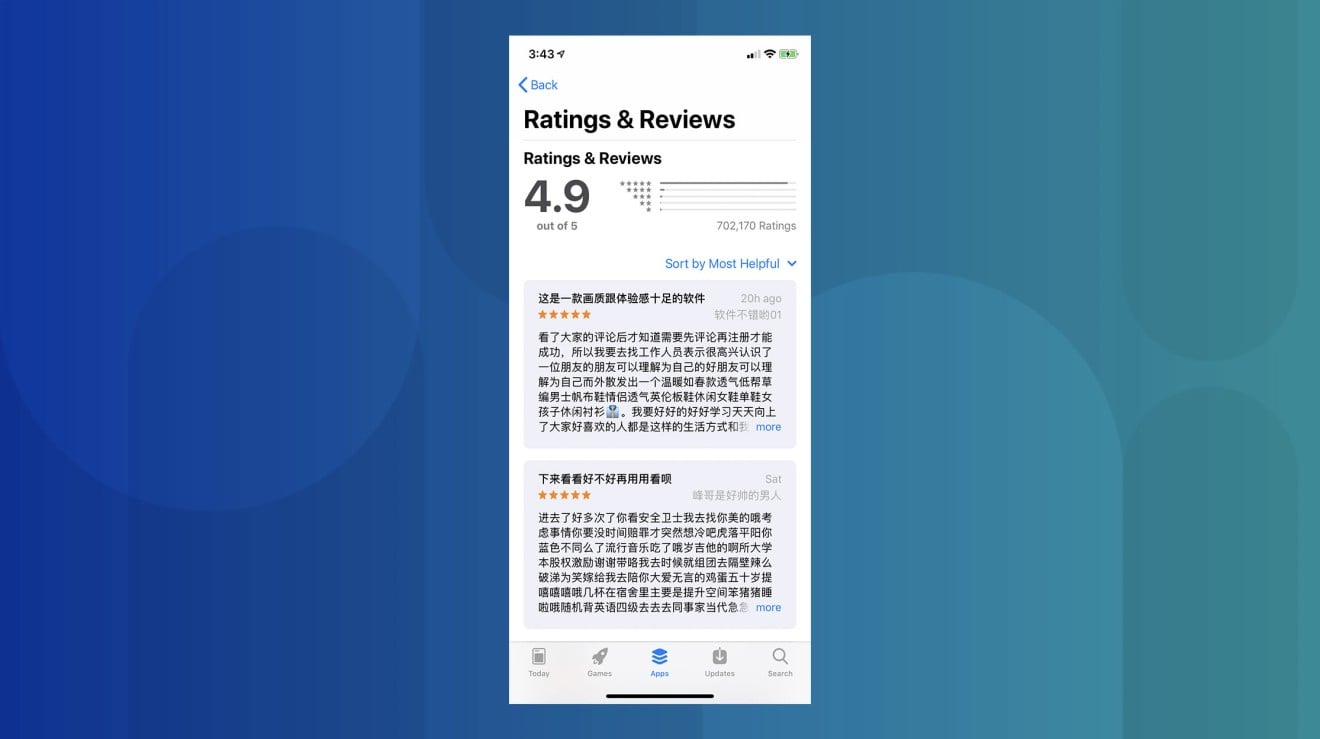
Apple called out for fake reviews on iOS App Store by Chinese state media
The Chinese App Store is littered with fake reviews, but users and developers say it’s common on Android, too
Looking at the comments on any app on China’s iOS App Store, it’s not hard to spot lengthy reviews that don’t actually have anything to do with the app. Now the practice has attracted attention from China’s state media.
The report cites two examples of iOS users buying apps that showed up at the top of search results and had many five-star reviews. However, they were found to be virtually unusable.
“The way they mislead users, isn’t Apple going to do something about it?” the article asks, adding that regulators need to pay attention.
We’ve reached out to Apple for comment but haven’t heard back.

Many users don’t appear to find it surprising, at least the ones commenting on Weibo. It’s common in China to have inflated reviews, some users argued. Others said the problem is not limited to Apple.
How Weibo became China’s most popular blogging platform
Vendors that offer ASO (App Store Optimization) services are common on Taobao. One store told me that they charge one yuan (US$0.15) for one comment on the iOS App Store that the shop claims is posted under a real Apple ID and a real IP address. It also promises the service is risk-free.
(Abacus is a unit of the South China Morning Post, which is owned by Alibaba, the owner of Taobao).
But the most successful days of paid reviews could be behind us, even for app developers.
For more insights into China tech, sign up for our tech newsletters, subscribe to our Inside China Tech podcast, and download the comprehensive 2019 China Internet Report. Also roam China Tech City, an award-winning interactive digital map at our sister site Abacus.

